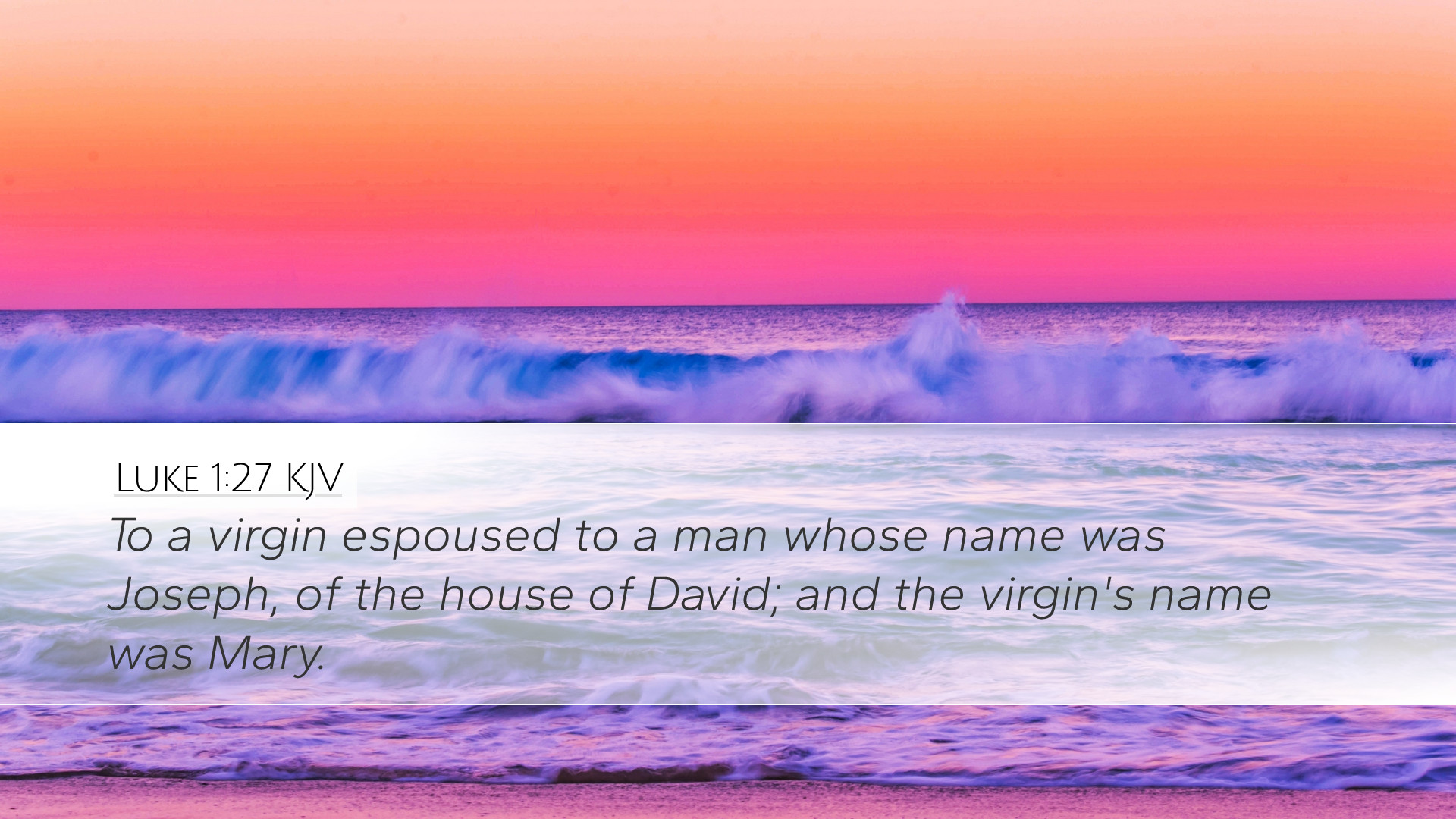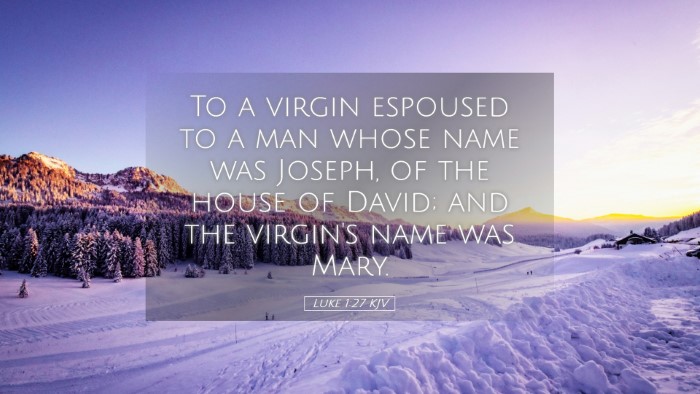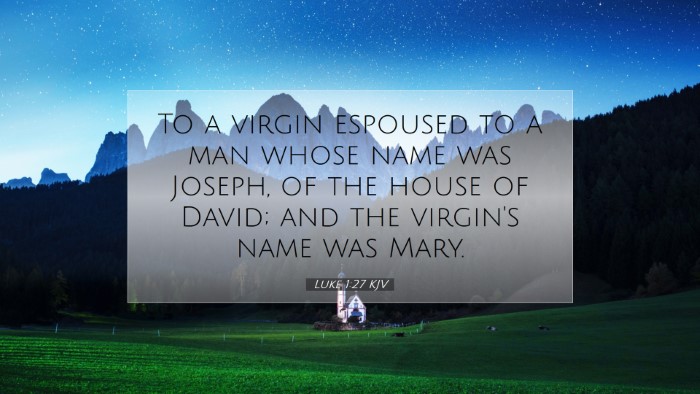Commentary on Luke 1:27
Bible Verse: "To a virgin espoused to a man whose name was Joseph, of the house of David; and the virgin's name was Mary." (Luke 1:27)
Introduction
The verse sets the foundation for one of the most remarkable narratives of the New Testament—the Annunciation and the subsequent birth of Jesus Christ. In Luke 1:27, we encounter a pivotal moment that illustrates Mary's purity, the divine choice, and the fulfillment of God's promises through historical lineage. This commentary draws upon the insights of revered public domain commentators to offer a comprehensive understanding of this text.
Context and Historical Background
Luke's Gospel is notable for its emphasis on the marginalized and the role of women in God's salvation history. By introducing Mary and Joseph in this manner, Luke not only underscores the humble origins of Jesus but also highlights the significance of divine intervention. Scholars emphasize the cultural context regarding betrothal in Jewish customs, which was a formal engagement that often had serious implications.
Public Domain Commentary Insights
Matthew Henry's Perspective
Matthew Henry notes the significance of the virginity of Mary. He highlights that her being a virgin emphasizes the miracle of Christ's conception. He states, "The truth of Christ's incarnation is asserted, and it must be believed that Jesus was born of a virgin, which points to his holy character and divine nature." He further explains that this miraculous birth was essential for fulfilling the prophecy written in Isaiah 7:14 about the virgin giving birth to a son.
Albert Barnes' Commentary
Albert Barnes elaborates on the significance of Mary being espoused to Joseph. He explains that the term "espoused" indicates a binding agreement, which suggests a serious commitment between Mary and Joseph even before the formal marriage ceremony. This betrothal was akin to marriage in its legal ramifications. Barnes emphasizes that despite the potential shame and public scrutiny, Mary was chosen by God to fulfill this extraordinary role, indicating her obedience and faith.
Adam Clarke's Analysis
Adam Clarke provides extensive historical detail, noting that genealogies and family lineage were of immense importance in Jewish culture. He highlights that Joseph's lineage traced back to David, fulfilling God's covenant promise to David that his offspring would have an everlasting kingdom. Clarke emphasizes that understanding Mary's background within this scriptural context deepens our appreciation for the narrative's implications of destiny and divine plans.
Theological Implications
This verse serves as a theological cornerstone regarding the nature of Christ and God's redemptive plan. The virgin birth signifies the beginning of the fulfillment of God's promises to humanity. The fact that Mary was chosen as a vessel for the incarnation speaks volumes about God's sovereignty and grace.
Key Theological Themes
- Divine Choice: The selection of Mary highlights God's initiative in salvation history, emphasizing that His purposes are realized through seemingly ordinary individuals.
- Fulfillment of Prophecy: Mary's virginity directly connects to biblical prophecies, illustrating how God orchestrates events across generations to fulfill His word.
- Human Obedience: The faith of Mary is pivotal; her willingness to accept such a monumental role exemplifies obedience to God's will, setting an example for all believers.
Applications for Pastoral and Theological Reflection
For pastors and theologians, Luke 1:27 is a rich source of reflection on the interplay of divine grace and human response. The text invites ministers to consider how they can encourage congregations to engage in faith-filled obedience, regardless of societal expectations or personal circumstances.
Practical Applications
- Encouragement in Obedience: Pastors can use Mary’s example to inspire faithful perseverance among their congregants, promoting action led by faith.
- Understanding Prophecy: Teaching on the fulfillment of Old Testament prophecies can deepen the faith of believers and enhance their appreciation for God's word.
- Missions and Evangelism: The narrative calls believers to recognize that God can use anyone, at any time, in extraordinary ways. This can be a rallying point for mission efforts.
Conclusion
Luke 1:27 provides a succinct yet profound insight into the miraculous conception of Jesus Christ through Mary. Drawing from authoritative biblical commentaries, we can affirm that the essence of this verse extends beyond historical narrative; it signifies God's faithful promise and invites believers into a deeper relationship with Him through faith and obedience. As we reflect on this passage, may we be inspired by Mary's faith and recognize God's sovereign hand in all of history.


